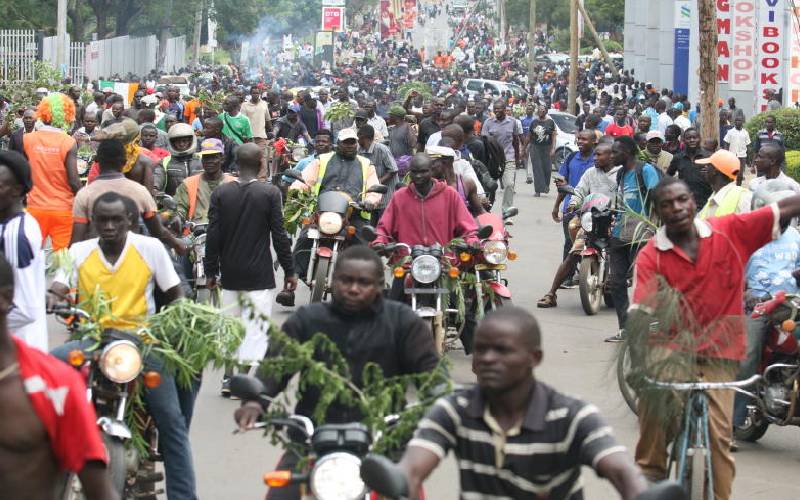×
The Standard e-Paper
Stay Informed, Even Offline

Protesters demonstrate along Kenyatta Avenue within the Kisumu CBD over electoral reforms in October 2017. [File, Standard]
Chinese philosopher Lao Tzu wrote: “When a nation is filled with strife, then do patriots flourish.”